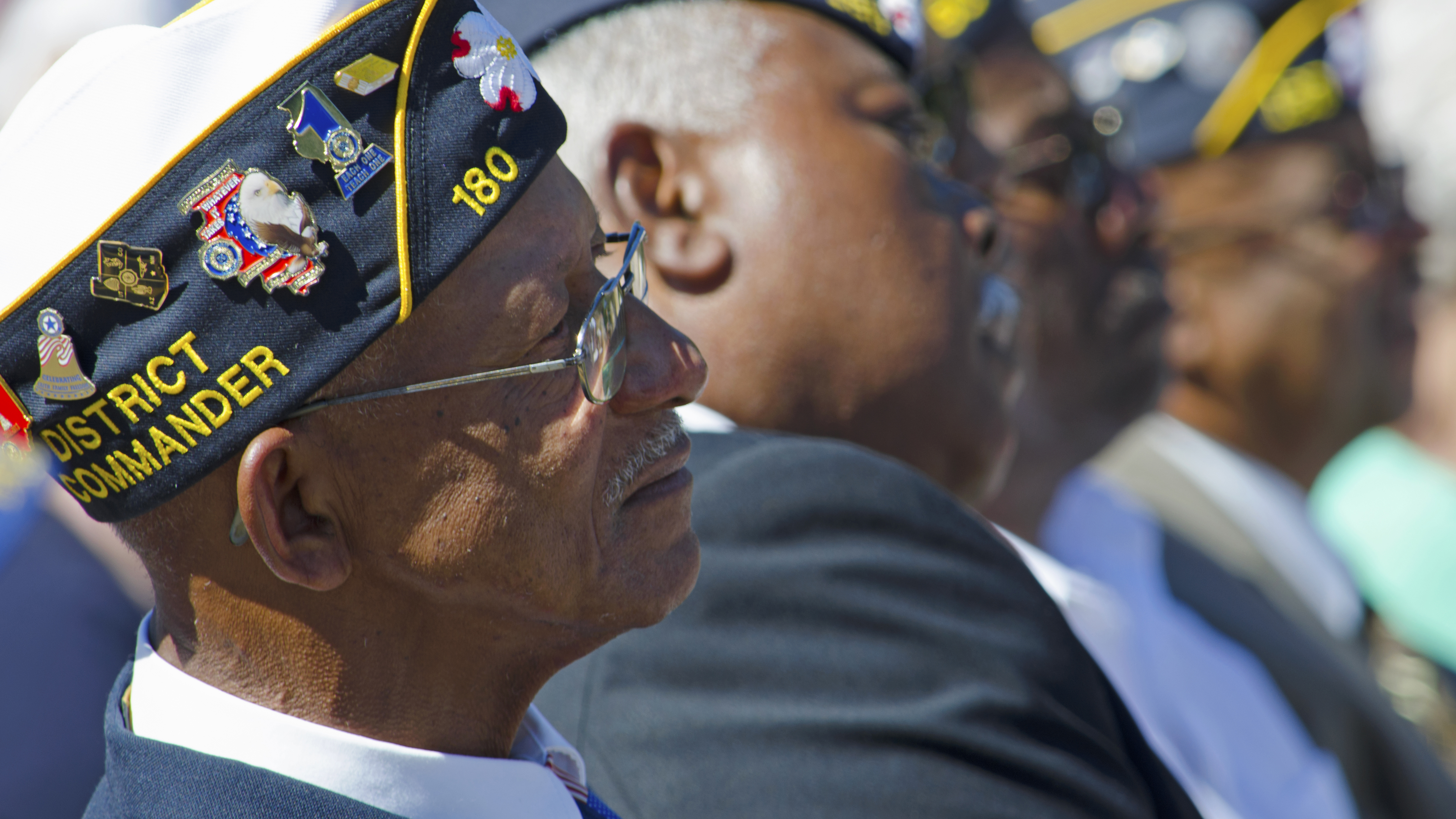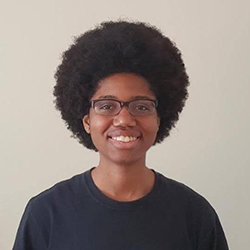Tuesday, Feb 2, 2021
$8,000 Kickstarter campaign helps fuel creation of ‘A Two-Front War’ series
by Ethan Duer
Junior Danielle “Dani” Jackson, a history and film and television double major, is turning an academic research project into a 12-part documentary series about African American veterans’ fight for civil rights thanks to a recent Kickstarter campaign.
Named a “Project We Love” by Kickstarter, the campaign — which has exceeded its original goal of $5,500 and raised more than $8,000 to date — will allow Jackson to finalize her first episode of the documentary series, A Two-Front War. The series chronicles the stories of African American World War I and II veterans who fought for their country abroad and for their own civil rights at home. Jackson hopes to raise awareness for a forgotten demographic of national heroes.
“A lot of times in history, African Americans are portrayed and seen in enslavement,” Jackson says. “We show their oppression. We show their bondage. But I would like for people to see their strength. I would like for these veterans to be remembered for the super soldiers that they were.”
Jackson began working on the project after receiving an Undergraduate Research Scholar Award (URSA) from Rider. Each spring, a small group of students are selected to receive the $5,000 award, dedicated to supporting independent student research and scholarship. Encouraged by her professor and adviser, Dr. Shawn Kildea, Jackson stepped into the director’s chair.
“The more we talked about this project and brainstormed, it seemed like this could be a series, not just a short film,” Kildea says. “The idea would be to first make a 24-minute program of high enough quality that could be brought to a Netflix, an Amazon, a Hulu and pitch it as a series.”
Always interested in U.S. military history, Jackson says she did not realize the depth of African American soldiers' involvement until she began researching.
“It wasn’t until I was able to deep dive did I realize we have been here the entire time in terms of participating since the Revolutionary War,” she says.
A number of junior Rider film and television majors are also involved in the project, including executive producers Benjamin Ross and Patrick Konopka, production manager Sarah Waldron, assistant project manager Tiffany Hartman and boom operator Andrew Jacabacci.
I would like for people to see their strength. I would like for these veterans to be remembered for the super soldiers that they were.
Throughout the series, Jackson aims to stress that African American soldiers were expected to serve their country faithfully, despite not having the same rights as their white counterparts.
“They are carrying the burden of what they are experiencing here at home and they are going overseas and still fighting for a country that doesn’t love them,” she says. “I don’t know what kind of power that is but I would like for people to recognize that that is a burden not other demographics have had to deal with.”
The first episode of A Two-Front War focuses on the lives of Charles Hamilton Houston and Medgar Evers.
Houston served as an officer in World War I. After returning from the war, he graduated from Harvard Law School and wrote foundational legislation for the Civil Rights Movement, including the monumental Brown v. Board of Education case in 1954. Evers returned to his home state of Mississippi after serving as a sergeant in World War II and became a vital organizer for voter registration drives and boycotts. He also established new chapters of the NAACP in the deep South.
“These two subjects are amazing because you have Houston laying the groundwork legally and then you have Evers picking up the groundwork for grassroots activism,” Jackson says.
In conjunction with the renewed awareness of the Black Lives Matter movement and global conversations about racial injustice, Jackson says now, more than ever, African American soldiers’ lives and sacrifices should be honored.
“I think that we’ve all seen with 2020, even going into 2021, there’s a lot of political dissension amongst America and amongst the world at the time in which African American voices are now being elevated,” she says. “It’s important to include these veterans within the narrative, especially the veterans within the underrepresented populations. At a time in which we are having this platform, I would like to utilize it and give a stage to these men and women who have fought so valiantly over hundreds of years and finally get the honor they deserve.”


